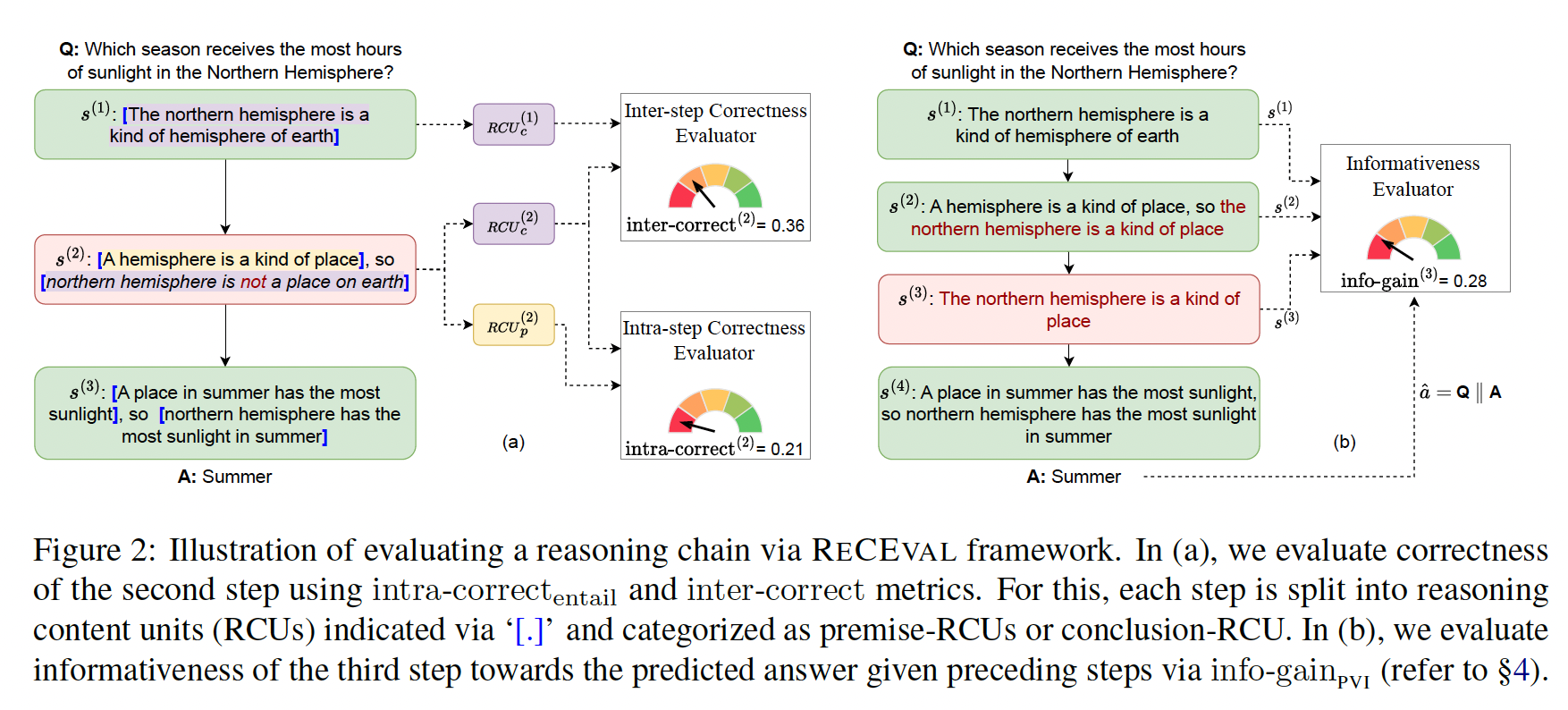- Authors: Archiki Prasad, Swarnadeep Saha, Xiang Zhou, and Mohit Bansal (UNC Chapel Hill)
- Paper
- Note: This is preliminary version of our code. The complete code to run all experiments in the paper will be added shortly.
This code is written using PyTorch and HuggingFace's Transformer repo. Running ReCEval requires access to GPUs. The evaluation is quite light-weight, so one GPU should suffice. Please install Entailment Bank and GSM-8K datasets separately. For using human judgements datasets for GSM-8K and running baselines please follow the setup procedure in ROSCOE (preferably in a separate environment).
The simplest way to run our code is to start with a fresh environment.
conda create -n ReCEval python=3.9
source activate ReCEval
pip install -r requirements.txt
evaluate_receval.pycontains the implementation of metrics in ReCEval.train_*_pvi.pyscripts are used to train models for the PVI-based metrics.perturb_EB.pyapplies perturbations to the reasoning trees in Entailment Bank.run_flan.pyis used to obtain chain of thought responses from the GSM-8K dataset.- To compute metrics and evaluate, simply run
python evaluate_receval.py(with default Entailment Bank). Default model and data directories can directly be changed within the script. These variables include:inp_model_dir: Model g for calculating PVI-based intra-step correctnessinp_model_dir: Model g' for calculating PVI-based intra-step correctnessinfo_model_dir: Model for calculating PVI-based information-gainsource_path: Path containing reasoning chains to be scored or meta-evaluated
Please cite our paper if you use our repository in your works:
@article{Prasad2023ReCEval,
title = {ReCEval: Evaluating Reasoning Chains via Correctness and Informativeness},
author = {Archiki Prasad and Swarnadeep Saha and Xiang Zhou and Mohit Bansal},
year = {2023},
archivePrefix = {arXiv},
primaryClass = {cs.CL},
eprint = {2304.10703}
}